There are so many different types of compressors out there, it can be a challenge choosing the right one.
Which type of compressor should you use for vocals?
Well, here's the answer...
Optical compressors are the best types of compressors for vocals because of their smooth and transparent qualities. For a more aggressive sound, use a FET compressor.
That's the short answer, but let's figure out what the best type of compressor is for what you're currently working on...
What Does A Vocal Compressor Do?
Before diving into what compressor to use, it's important to understand what a vocal compressor does.
A compressor is an amplifier who's output gain (db) reduces as input gain (db) increases.
In other words, a compressor makes low volumes louder and high volumes quieter.
Therefore, good compression on a vocal will smooth out the performance so the high-energy sections aren't too jarring, and the soft parts are still loud enough to hear.
Good compression can help make your vocal sound more full, and help it to sit on top of the mix.
Needless to say, vocal compression is necessary.
What is The Best Compressor For Vocals?
The type of compressor you go for depends on what kind of sound you're shooting for.
Optical Compressors:
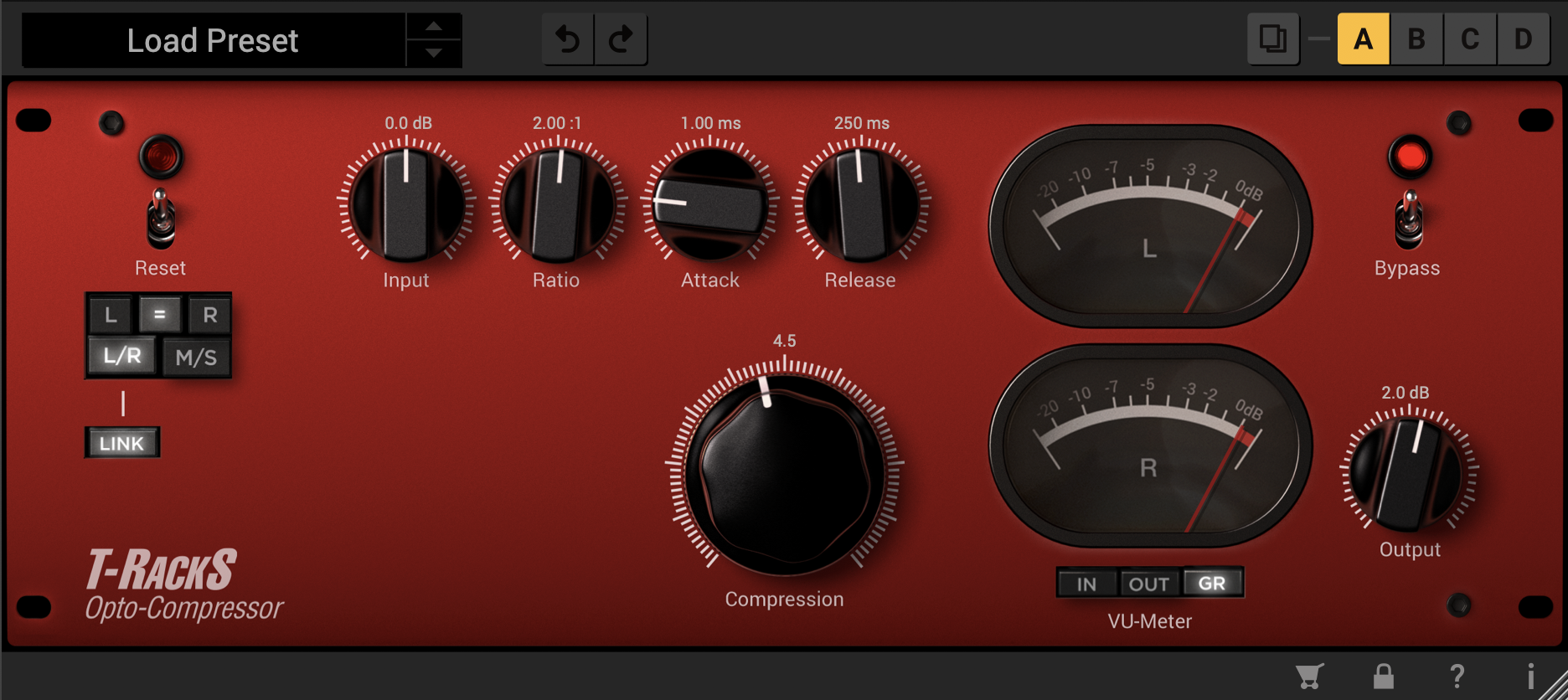
Like I mentioned above, Optical compressors are great for vocals because of their smooth and transparent qualities.
If you're making a typical pop or EDM song, you're not going to want the vocal performance marred and squashed by a compressor.
You want to preserve the dynamic performance, while also taming it at the same time.
What Makes Optical Compressors Great?
In an optical compressor, the audio signal is turned into light. Is that sweet or what?
This light then triggers a sensor that governs the amount of gain reduction. The inherent nature of this operation is smooth and transparent, like a lightsaber cutting through butter.
This is why Optical are great if you're going to a transparent sound.
However, many hardware and hardware-modeled plugins of optical compressors have fixed ratios of typically 3:1.
This means you can't really do any extreme compression with them (which, again, might be a positive).
Good for:
- Transparent compression
- Adding warmth and sheen to vocals
- Improving the vibe of vocal tracks
Not as good for:
- Controlling hard transients (the fast beginning of a sound)
- Aggressive-sounding compression
FET Compressors:
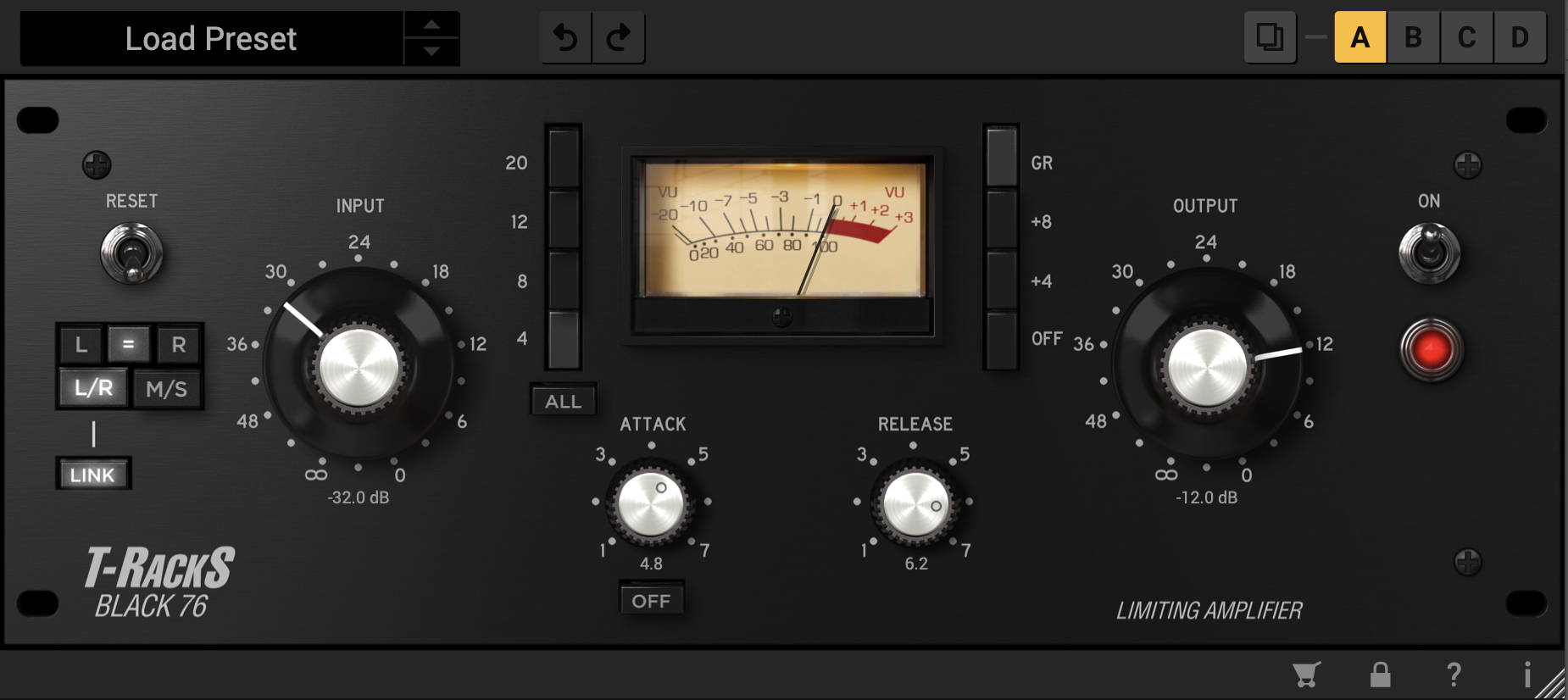
Now you may or may not be thinking to yourself,
"But what if I don't want smooth and transparent compression? What if I want an aggressive sound?"
This is where the FET compressor comes in.
What Makes FET Compressors Great?
A FET compressor is what you'd turn to if you want to impart a distinct sonic fingerprint on your vocals.
The most widely used FET compressor is the Urei 1176, which has been emulated in plugin-form by many different companies such as IK Multimedia, Waves, Universal Audio, and others.
Good for:
- Adding an aggressive sound and excitement to vocals
- Limiting, due to fast attack time
- Blending extreme compression with an uncompressed sound (A.K.A. "Parallel Compression")
Not as good for:
- Obviously, transparent compression
Best Optical Compressor Plug-Ins For Vocals
Your DAW may already have an optical-modeled compressor, for example, the one in Logic Pro X looks like this:
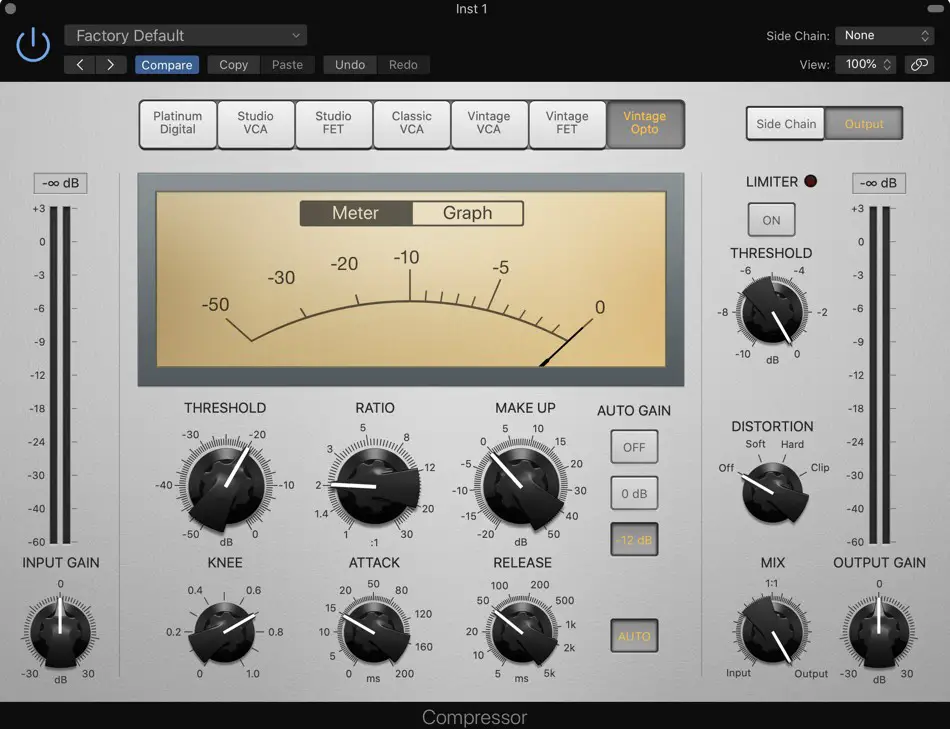
However, if you're looking for something a little higher quality, the LA-2A and LA-3A are two of the most famous compressors of all time, and are great for vocals.
Waves, IK Multimedia, and others have modeled these compressors in the form of plug-ins. But what's the difference between the LA-2A and the LA-3A?
They're both optical compressors, so they are very similar; however, the main difference between the LA-2A and the LA-3A is that the LA-2A is the technology used to compress the audio signal.
The LA-2A is tube-based, whereas the LA-3A has a solid-state design. The tube-based circuitry colors the sound more than a solid-state.
CLA-2A / White 2A
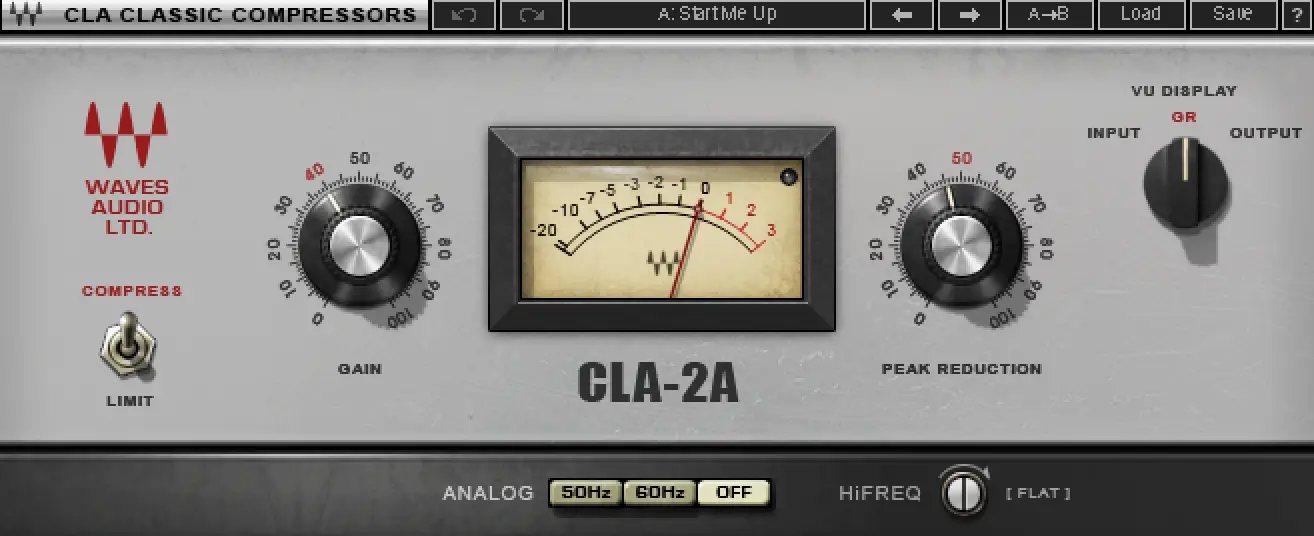
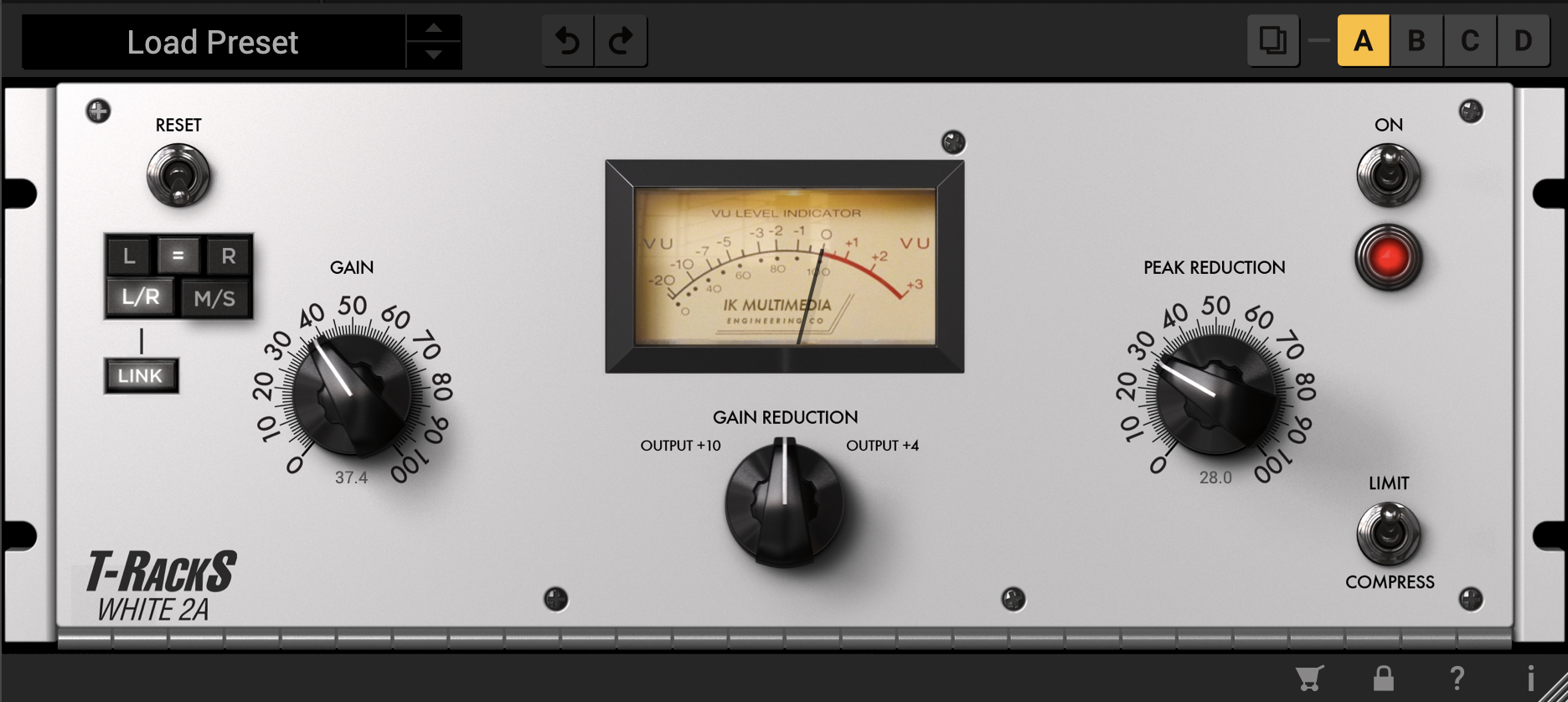
- Reacts a little slower
- Good for a smoother, warmer, and fatter sound
- Good for adding color to vocals
- Many engineers prefer the LA-2A's smoothing effect on vocals
CLA-3A
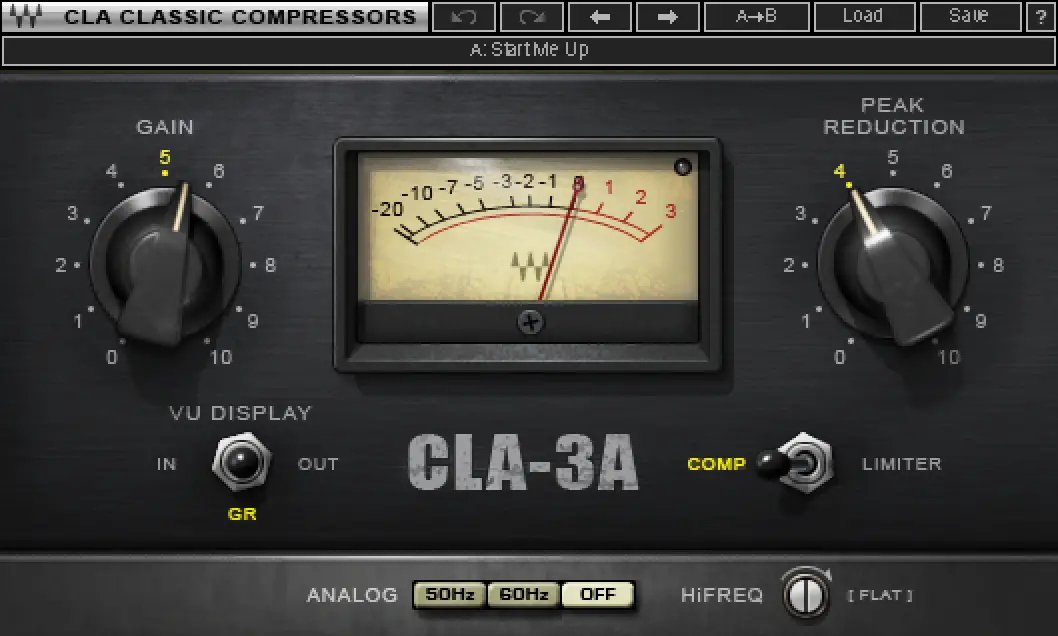
- Reacts more quickly
- Good for tighter, punchier, and sharper sound
- Good for a more transparent sound
- Many engineers prefer the LA-3A's for vocals that need a lot of compression
Best FET Compressor Plug-In For Vocals
Your DAW may already have an optical-modeled compressor, for example, the one in Logic Pro X looks like this:
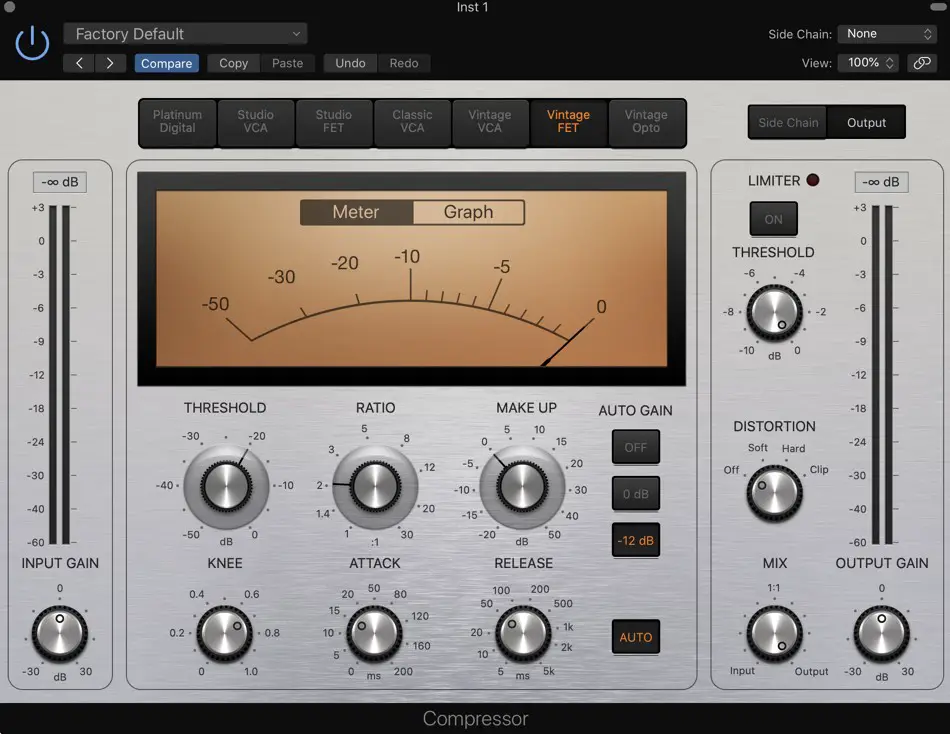
Again, though, if you're really wanting add that analog sound to your track, then consider going with the 1176 compressor, which has been modeled by both Waves and IK Multimedia.
CLA-76 / Black 76
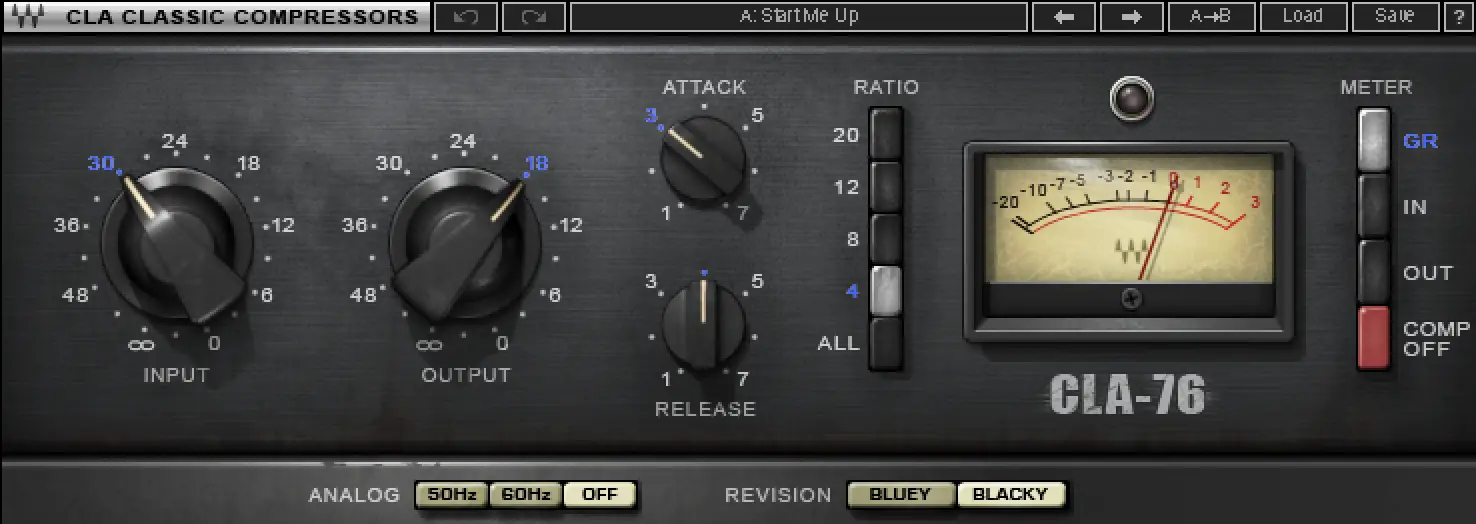

This is a great FET compressor for vocals.
How Many Compressors Do You Need For Vocals?
So now you know that a FET compressor is great for aggressive compression, and an Optical compressor is great for smoothing compression...
So which do you use?
Well, you might want to consider using TWO compressors on your vocals.
A FET like the Black 76 to tame the peaks of a vocal performance and add some excitement, and then the White 2A to smooth out the overall performs so it fits well in your mix.
The Mix Down: Conclusion
As with everything in music production, there really is no right or wrong, just what sounds good to the ears. So always go with what sounds best to you when mixing.
That said, it's good to understand what tools you have on hand, and what those tools can do for shaping and sculpting your sound.
For compressing vocals, generally you're going to want to reach for an optical compressor, but if you're wanting a more aggressive sound, go for a FET.
Most of the time, you're going to want to use two compressors anyway for vocals, so why not reach for both?
Use the fast attack and release of a FET to tame the peaks and transients of a vocal, and then follow that up with an optical compressor to smooth out the sound and maybe add some warmth and color.
Want to Mix Better & Faster?
Have you been stuck trying to finish the same set of songs for months or even years?
Do you find yourself abandoning songs before finishing them?
This might be because you don't have a plan, or the plan you do have simply takes too long. If you want better mixes, you have to mix quickly and strategically.
That's why I put together a free Mixing checklist to help you complete your tracks fast, without sacrificing quality.
Just click the button below to download it!
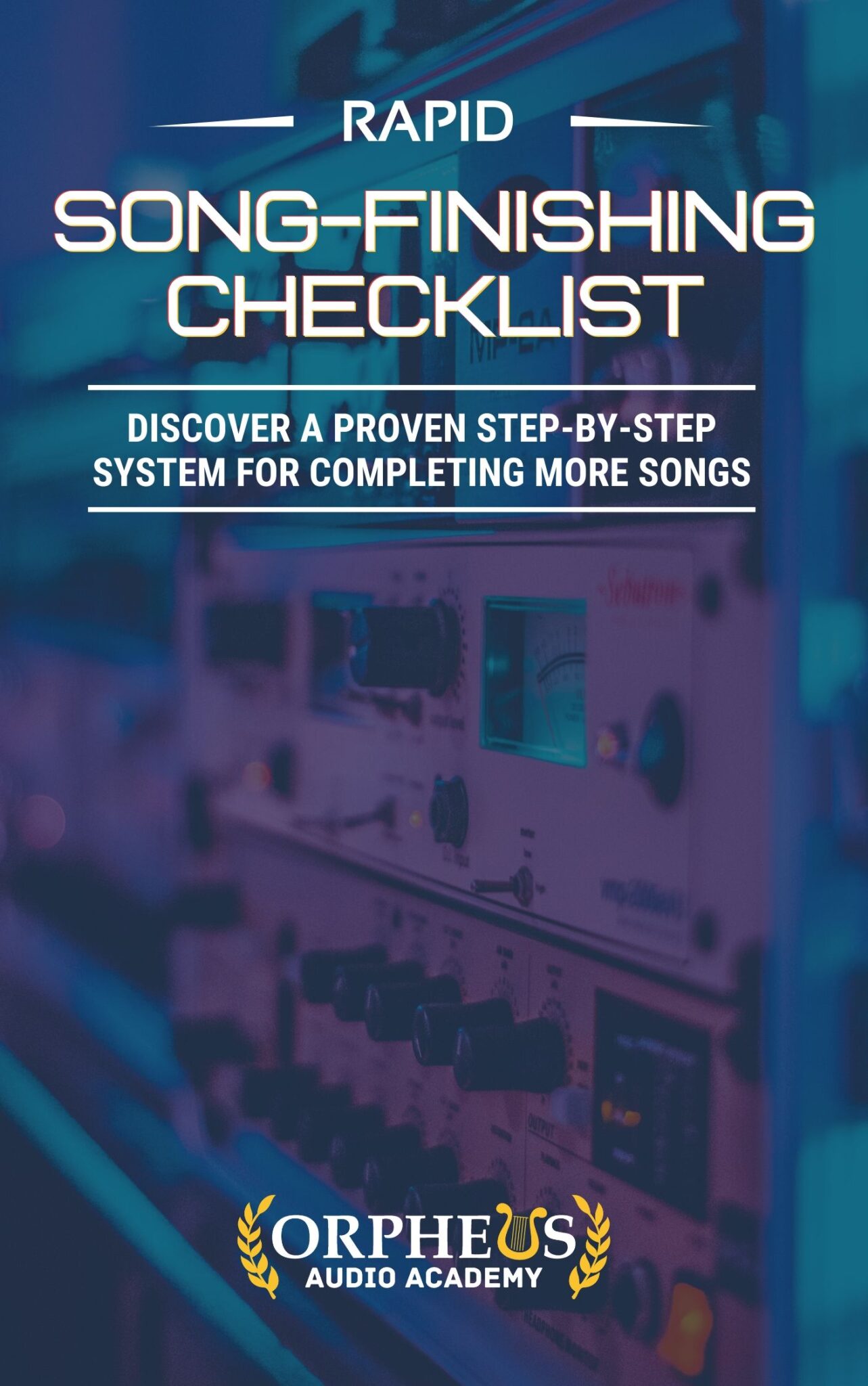
Create Better Songs, Faster
Click below to download my free song-finishing checklist to help you create radio-ready songs without taking months to complete them.
This will be especially beneficial if you don't have a lot of time in your day or week to work on music.
I hope you enjoyed this post on, Which Type of Compressor Should You Use On Vocals, and got value from it.
If you did, I'd love for you to give it a share with your DIY musician buddies!
Also, let me know in the comments below...
